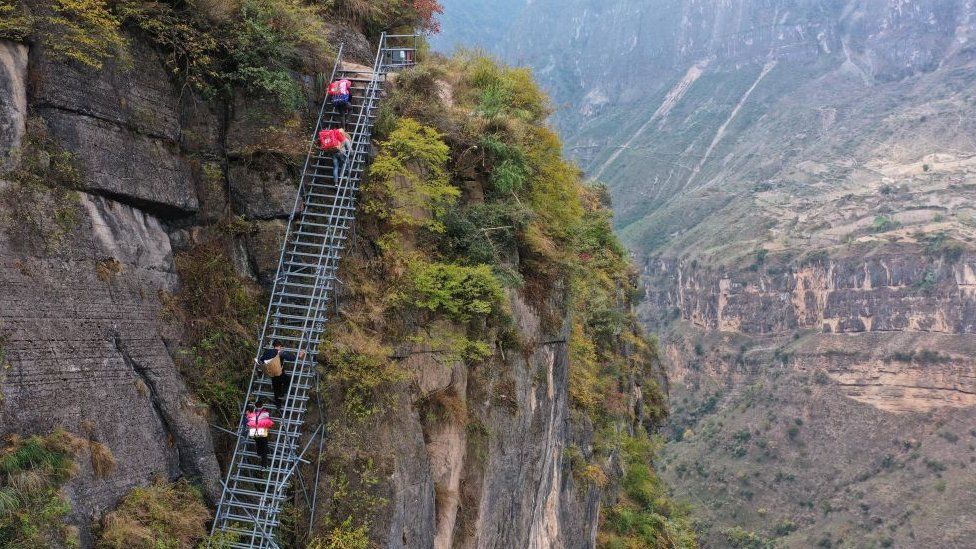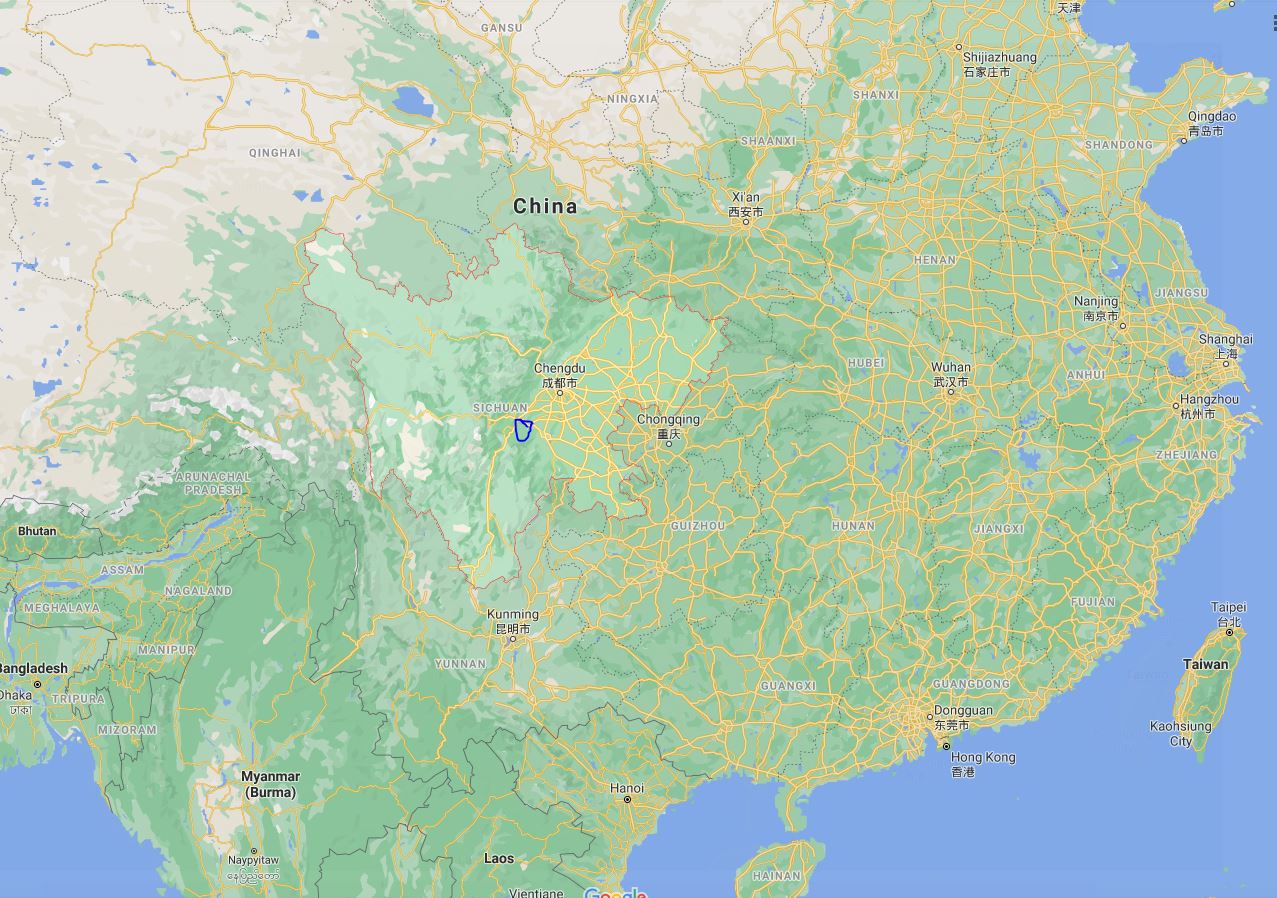
It’s a bank holiday weekend, and I would normally switch off. But no. Like so many of us, I’m still watching the news, keeping up-to-speed on twitter and facebook, scanning my emails and getting links.
One link led me to a documentary on YouTube. It hooked me because someone mentioned that a 70-year old Grandma took an Alipay payment on a remote mountaintop in China. Did I ever say that taking a payment on the top of Mount Everest would happen one day?
Sure enough, the documentary does show that in one moment, but the 50-minute film sucked me in. So, as it’s a holiday Monday for many, I’m sharing this film here.
It’s by Japanese director Takeuchi Ryo, who made a film ten years ago about one of China’s poorest areas, the Liangshan Yi Autonomous Prefecture.
Liangshan is in the southern extremity of Sichuan province, China, and covers an area of over 60,000 kilometres and around 5 million inhabitants.
Note: the blue circle is approximately where you will find Liangshan
It also has the largest population of Yi peoples.
If you are unaware of the Yi people, they are an ethnic group in China, Vietnam and Thailand, numbering nine million people, and are the seventh largest of the 55 ethnic minority groups officially recognized by the People's Republic of China. They live primarily in rural areas of Sichuan, Yunnan, Guizhou and Guangxi, usually in mountainous regions, and have their own language: Loloish. Loloish languages are closely related to Burmese.
Anyways, Ryo-san has updated his film and made a new documentary about the cliff village as it is today and I cannot more highly recommend Ryo-san’s movie to you, if you have 50 minutes to spare.
The reason is that I found it very touching and presents a different perspective of China.
In British media, and with the BBC now banned by the People’s Republic of China (PRC), all we ever get is anti-PRC PR. It’s all about abuses of human rights and the suppression of ethnic groups. Ryo-san’s documentary shows another side.
A key part of the theme of the documentary is that a key objective of the PRC is to reduce poverty. To achieve this people need education, and the film focuses heavily on educating people in the remotest parts of China.
Admittedly, it is through volunteer teachers, but things are changing. They focus upon some children like ér miáo and his family. His parents have never been anywhere outside Zhaojue, never had any schooling and cannot speak Chinese. They only speak Loloish. Having said that, lovely family and lovely people.
Having grown up on the mountainsides of the Sichuan province, the Chinese government has worked hard to move these villagers from an 800 metre high perch to the valley below.
Source: NPR
It is a key aspect of the PRC’s drive to reduce poverty.
Six minutes into the documentary is a fascinating scene showing the local bank taking its services to the mountain villagers
It amazed me that the bank would climb 800 metres with staff, terminals and a printer to service people living so remotely.
A short while later, Ryo-san comes across an old lady who sells basics like water, to those climbing the mountainside. Bear in mind, it’s a hard climb, but she’s there every day. 70 years old, she’s not someone highly automated, but she takes Alipay. Just watch the clip.
It's amazing how our world is changing through inclusion and technology. Digital for Good.
What surprised me was later in the documentary the fact that the PRC is giving people homes. Have you heard about this?
The government has moved many of the younger villagers from the mountains to the valley by spending $30 million building an apartment complex and giving the people homes, for free. No charge. They also give every home washers and heaters for free too.
The homes are owned by the government, but villagers can buy them for less than $500 for each family member. Having said that, these people earn less than $1,000 a year on average, so it's not so cheap. But they have a home, and they don't need to own it. It's courtesy of the PRC.
Anyways, as I say, I wouldn’t normally post something on a holiday Monday but, as it’s a holiday Monday, if you have an hour free … watch this film.
Chris M Skinner
Chris Skinner is best known as an independent commentator on the financial markets through his blog, TheFinanser.com, as author of the bestselling book Digital Bank, and Chair of the European networking forum the Financial Services Club. He has been voted one of the most influential people in banking by The Financial Brand (as well as one of the best blogs), a FinTech Titan (Next Bank), one of the Fintech Leaders you need to follow (City AM, Deluxe and Jax Finance), as well as one of the Top 40 most influential people in financial technology by the Wall Street Journal's Financial News. To learn more click here...


